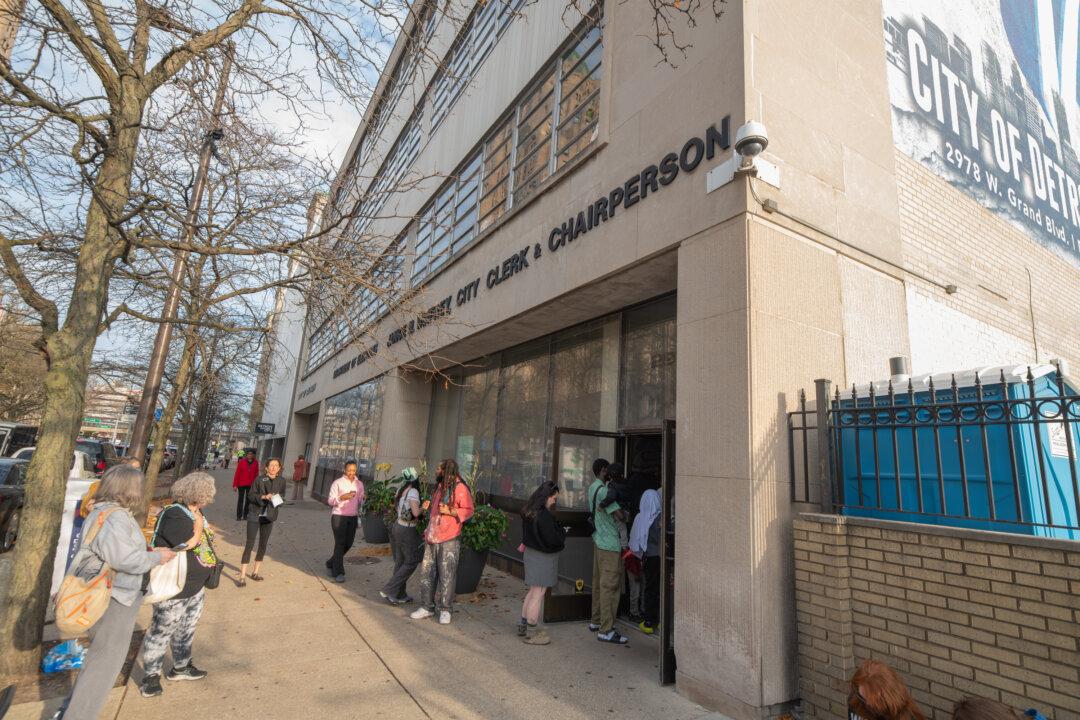Study results released this month showed that Democratic poll workers greatly outnumbered Republican poll workers at precincts in Michigan’s largest cities during the November 2024 election.
Researchers from the Michigan Fair Elections Institute (MFEI), a nonprofit, educational organization, conducted the study based on official government records obtained by Freedom of Information Act (FOIA) requests.





